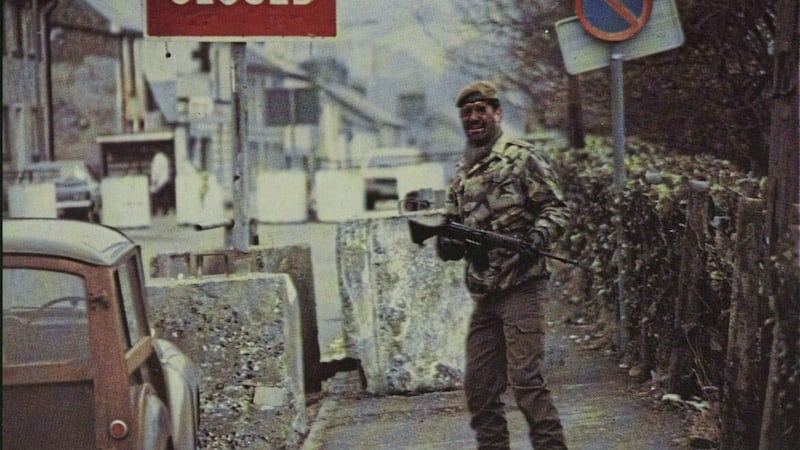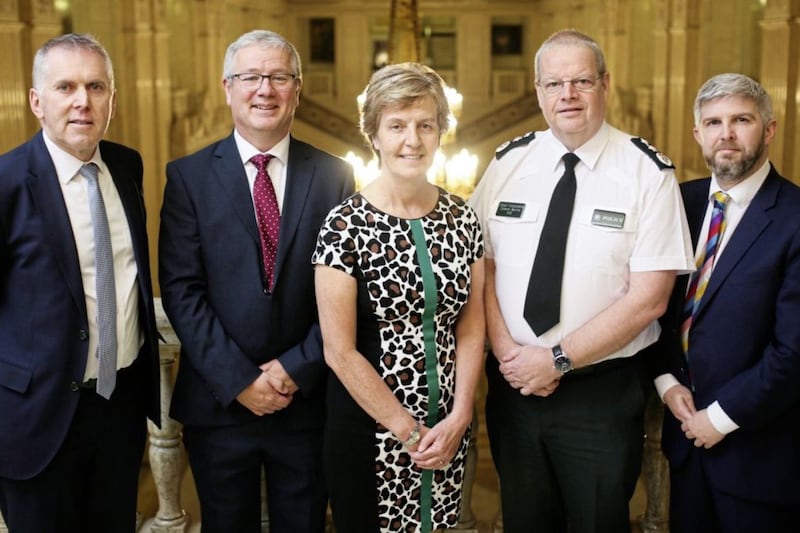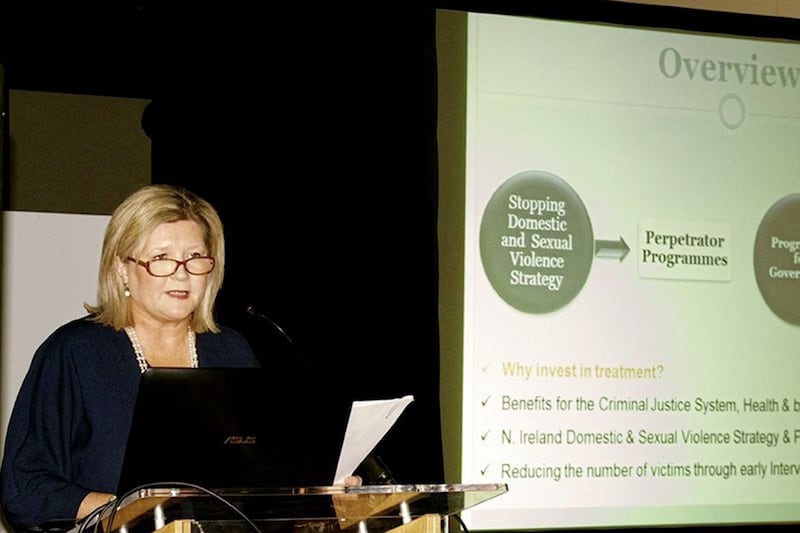In a quiet corridor on the first floor of Belfast Laganside courthouse is a room set aside for the pilot Substance Misuse Court (SMC), otherwise known as the problem solving court.
It is a not a court room or a conference room but a hybrid of both.
Shortly before 10.30am, offenders who have been chosen to take part in the scheme arrive.
All but one are men, raging in age from their late teens to early forties. Many bear the physical scars of a life marred by addiction and a hard-to-break cycle of offending.
Read More
Problem solving courts are not a 'soft option' says the Probation Board
Most are looking at prison time. The scheme works on the premise that it is better to treat the cause than the effect and successful completion of a treatment programme will negate a custodial sentence.
The judge seeing SMC through its nine month test period, Ms Fiona Bagnall, sits at the end of a long table.
She is not on a raised bench, as she would be in her usual role as Northern Ireland's presiding district judge, but on a level with the offenders on the day's list.
With no press area, I pull a up chair in the corner. This is a court but not in any recognisable way.
Along both sides of the table sit an array of professionals: addiction support workers, housing officers, mentors and probation officers, along with solicitors representing their clients in a collaborative system.
One by one, the offenders take a seat and their progress is assessed.
To qualify for the scheme they must agree to regular drug and alcohol testing. Few pass their tests with a clean sheet, some test positive for heroin, most have cannabis or cocaine in their system.
A failed drug test does not get offenders immediately thrown off the programme. They are allowed to stay on as long as they progress and appear to be engaged.
"You should have seen some of them at the start, they've really come on but you can't change years of behaviour overnight," said one of the support workers.
As Judge Bagnall goes through their achievements and failures her tone is more that of a social worker than a judge. She has a good rapport with the men who in turn speak to her in a relaxed but respectful manner.
There is laughter as one man, who claims he missed appointments because he had his phones stolen, proudly shows Ms Bagnall his new smart watch phone. "I'd like to see them try and steal this," he says, waving his arm around.
"You've a better phone than me," replies Ms Bagnall "make sure you answer if from now on".
A man in his late teens proudly shows Ms Bagnall a letter from an Irish Football Association (IFA) official which describes him as a talented and promising footballer.
For people used to hearing themselves described only in the negative, this type of praise is unusual.
The intensive support will be life changing for some, but for the majority their problems seem too complicated, their behaviour too well established to be helped by such an intensive scheme, regardless of how well intentioned.
The real test of success will be if the participants manage to break their cycle of offending. For the majority that may not be a realistic expectation.







